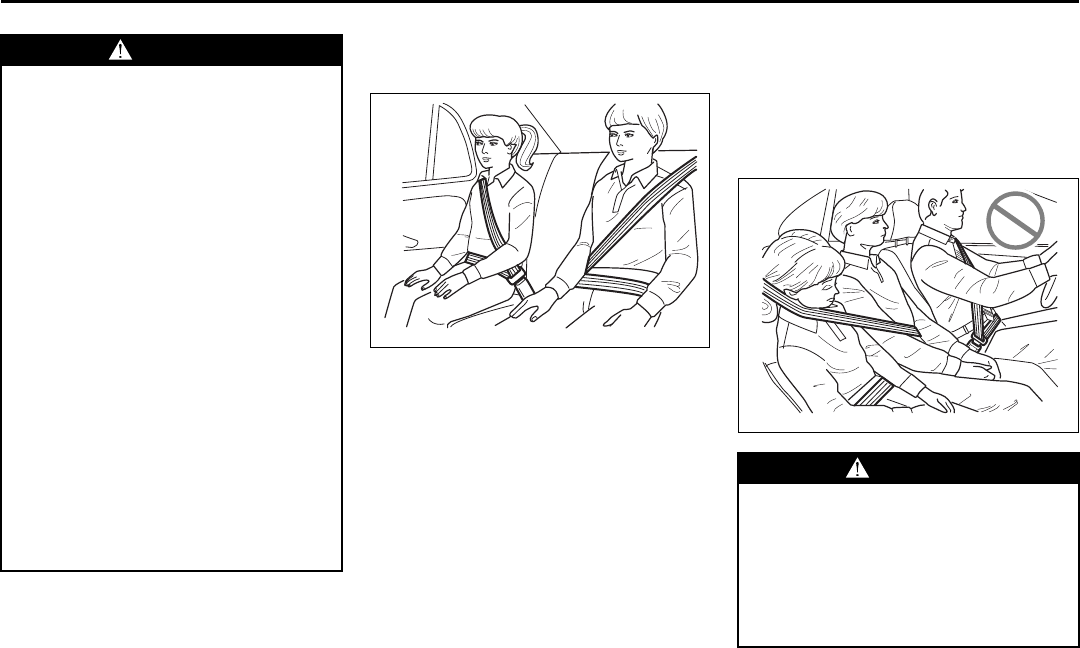
1-16
SEATS AND RESTRAINT SYSTEMS
85Z04-03E
Child Restraints
Older Children
Older children who have outgrown booster
seats should wear the vehicle’s safety
belts.
Question: What is the proper way to
wear safety belts?
Answer: If possible, an older child should
wear a lap-shoulder belt and get the addi-
tional restraint a shoulder belt can provide.
The shoulder belt should not cross the face
or neck. The lap belt should fit snugly
below the hips, just touching the top of the
thighs. It should never be worn over the
abdomen, which could cause severe or
even fatal internal injuries in a crash.
Accident statistics show that children are
safer if they are restrained in the rear seat.
In a crash, children who are not buckled up
can strike other people who are buckled
up, or can be thrown out of the vehicle.
Older children need to use safety belts
properly.
WARNING
Failure to follow these instructions
may increase the risk of injury in a
crash.
• Only use an extender for the per-
son, vehicle and seating position it
was provided for.
• A front safety belt extender must
only be used in a front seating
position, and a rear safety belt
extender must only be used in a
rear seating position.
• Safety belt extenders are not
intended for use by pregnant
women, and should only be used
upon approval by their medical
advisors.
• The extender has been designed
for adults. Never use it for securing
child seats.
• Do not use a safety belt extender if
the open end of the extender’s
buckle is within 152 mm (6 inches)
of the center of the occupant’s
body (See diagram).
• Remove and stow the extender
when it is not being used.
L3U1036A
WARNING
Never do this.
Here two children are wearing the
same belt. The belt can’t properly
spread the impact forces. In a crash,
the two children can be crushed
together and severely injured. A belt
must be used by only one person at a
time.
L3U1037A
Safety Belts:
Child Restraints:
